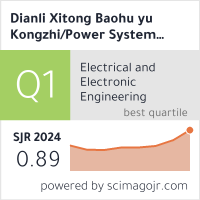EVALUATING AGENT-BASED CUSTOMER SERVICE IN ELECTRONICS RETAIL – A CASE STUDY
Keywords:
Agent-based systems, customer service, electronics retail, functional evaluation, convergence metrics, conversational AI, intent recognition, case studyAbstract
This paper presents a comprehensive case study on the evaluation of agent-based customer service systems within the context of electronics retail, a domain characterized by high product complexity and frequent customer inquiries. The study focuses on two key dimensions of assessment: functional effectiveness and convergence behavior. Functional evaluation examines the agent’s ability to accurately understand and resolve customer queries, analyzing metrics such as intent recognition accuracy, task completion rate, response latency, and customer satisfaction. Convergence evaluation, on the other hand, assesses the system’s learning dynamics and behavioral stability over time, including its ability to reduce fallback occurrences, increase automation rates, and improve consistency in responses through iterative updates or retraining. The case study draws from a real-world deployment in a mid-sized electronics retail chain, leveraging actual customer interaction logs and agent performance data across a six-month period. A notable differentiator of this paper is the dual-pronged evaluation methodology that not only measures how well the agent performs at any given time but also how it evolves to become more efficient and context-aware over time. Additionally, the study integrates feedback loops from human agents, enabling the agent to learn from escalated cases and progressively reduce human dependency. Unlike prior works that focus predominantly on initial deployment success or chatbot usability, this paper emphasizes long-term adaptability, operational resilience, and alignment with business KPIs such as customer retention, service cost reduction, and query deflection rates. The findings aim to serve as a benchmark for organizations seeking to quantify and optimize the performance of AI-driven customer support systems in complex retail environments.





